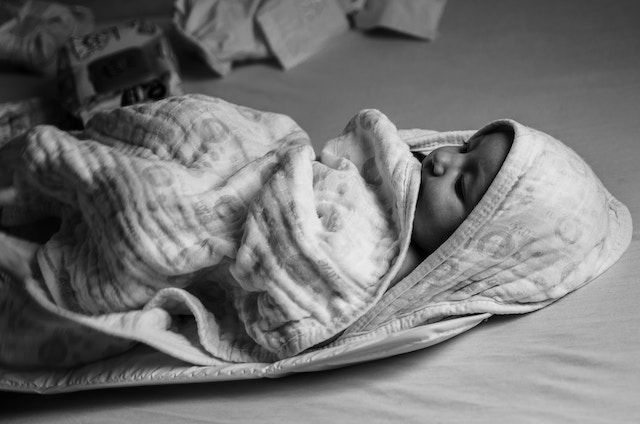Birth Trauma: The Silent Affliction in Maternal Health
Unraveling the hidden struggles of birth trauma: A deep dive into postnatal PTSD, its silent effects, and the pressing need for heightened awareness and compassionate maternal care.
In recent times, maternal mental health has been at the forefront of medical and societal attention. While most have been acquainted with conditions like postnatal depression, affecting one out of seven mothers, a lesser-known affliction lingers in the shadows: postnatal post-traumatic stress disorder (PTSD) or, as it's colloquially known, birth trauma.
Postnatal PTSD stems from traumatic experiences during childbirth, described by symptoms such as flashbacks, nightmares, depression, and anxiety. Studies indicate that while nearly half of all women find certain aspects of childbirth traumatic, roughly 4% go on to develop this severe condition.
 Photo by Joice Kelly
Photo by Joice Kelly
This ailment's elusive nature is such that its symptoms are often misdiagnosed as postnatal depression, leading to potential mishandling. The author of our source, despite being a mental health researcher, only became cognizant of this condition in 2018. What's more disconcerting is that by 2022, they had become a firsthand witness to the horrors of birth trauma.
Birth trauma's onset is often precipitated by profound fear—fear that either the mother or the baby might not survive. Numerous factors can amplify the risk of a traumatic birth experience. These encompass prolonged, painful deliveries necessitating medical interventions, such as unplanned caesareans, induced labour, or forceps deliveries. The post-delivery phase isn't devoid of potential traumas either. Complications such as heavy bleeding, infant medical treatment, or the devastating occurrence of a stillbirth can also instigate trauma.
A pivotal factor is the quality of care received during and after childbirth. Research underscores that inadequate care—manifested as disregard for the mother's concerns, insufficient information, or the absence of empathy—can catalyse trauma.
Illustrating this, the author recounts their personal ordeal. An unanticipated gas leak led to an abrupt evacuation from the labour ward. The author's child was ultimately delivered with forceps in an operating theatre, with an emergency caesarean team on standby. Subsequent complications, such as a secondary postpartum haemorrhage and their son's infection, added to their distress.
However, it wasn't merely the complications but the indifferent and unsympathetic treatment meted out during these trying times that profoundly impacted their psyche.
Postnatal PTSD's manifestations can be profoundly debilitating. The author endured relentless flashbacks—vivid reliving of traumatic moments, such as the chaotic evacuation during the gas leak or the anguish felt during delivery. Night terrors, an extreme form of nightmares, haunted their sleep. The merest reminders, be it their newborn's cry or an unanticipated touch, could send them spiralling into emotional and physical turmoil.
While the depth of despair, anger, and mistrust experienced post-birth was unparalleled, timely intervention provided a ray of hope. A community midwife's astute observation led to the involvement of a perinatal mental health team and subsequent trauma therapy.
Regrettably, the majority aren't so fortunate. In the UK, a paltry 7% of women displaying maternal mental health symptoms are referred for specialist care. The disparity is even more glaring across Europe, with 11% of countries lacking this vital support entirely.
Mitigating the prevalence of birth trauma necessitates a multi-faceted approach. It's imperative to elevate the standards of maternal care, addressing systemic issues such as underfunding, staff inadequacies, and burnout. Furthermore, confronting deep-rooted biases—related to income, disability, mental health, race, or ethnicity—that tarnish the quality of maternity care is paramount.
While these challenges are formidable and defy swift resolutions, acknowledging and addressing them is the first step. Birth trauma leaves indelible marks on its victims, but with increased awareness and action, many such tragedies can be averted.
For those battling the aftermaths of a traumatic birth, entities like the Birth Trauma Association, along with medical professionals such as midwives, health visitors, or GPs, can provide invaluable support.
Source: The Conversation





